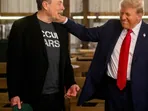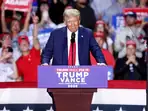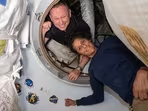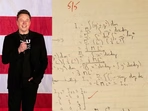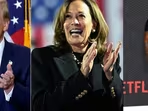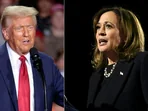Economic linkages at core of strategic relationship, Modi’s visit historic: Blinken
Economic linkages are the heart of the India-United States strategic relationship, US Secretary of State Antony J Blinken said on Monday, adding that both countries are together determining the norms, rules and standards that will govern innovations for the future.
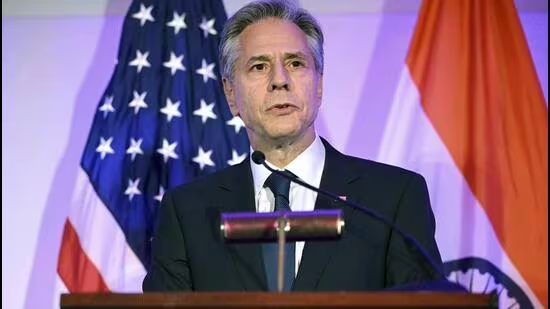
Blinken said Prime Minister Narendra Modi’s official visit to Washington DC on June 22 will be “historic” and solidify what President Joe Biden has called the “defining relationship” of the 21st Century.
As someone who has worked for Biden for two decades, dating back to the Democrat President’s time as chair of Senate foreign relations committee, Blinken said he knew Biden had not arrived at this conclusion “yesterday”.
“From that time, I know the premium he has attached to the relationship between our countries and the vision that he has had for the centrality, the importance, of that relationship,” he said.
Blinken was speaking at the inaugural reception of the India Ideas Summit, hosted by the US-India Business Council (USIBC), on Monday evening (eastern time). Held at Renwick Gallery, right opposite the White House in downtown DC, the event saw high-level participation from the US government.
Guests included US special envoy for energy affairs Amos Hochstein, deputy national security adviser Anne Neuberger, State department officials for South Asia, Donald Lu and Nancy Jackson, Pentagon’s Lindsay Ford, the energy department’s Geoffrey Pyatt, among others.
Indian ambassador to the US, Taranjit Singh Sandhu, and USIBC president Atul Keshap too spoke at the event, where representatives of top US and Indian companies with business interests in each other’s countries were also present.
“We see the importance of the partnership in a shared commitment to address regional and global challenges – promoting health security, working with our Quad partners to build a free, open, secure, prosperous Indo-Pacific where people, where goods, where ideas can travel freely and rules are applied fairly,” Blinken said, adding that he had seen India’s “constructive leadership” on the issues in the past two-and-a-half years and as chair of the G20.
Suggesting that economic ties were at the heart of the strategic relationship, Blinken highlighted the $191-billion-dollar US-India trade last year, the US investment of over $54 billion in India and Indian investment of over $40 billion in the US, and India joining three pillars of the Indo-Pacific Economic Framework (IPEF) as evidence of growing economic ties.
Also Read:How NSA Jake Sullivan is playing his part in charting India-US ties
He spoke of the convergence on supply chain diversification, the progress under the initiative on critical and emerging technologies (ICET) and the intense people-to-people ties. Blinken also quoted a Gujarati entrepreneur from North Carolina — from a ground report in HT published in March — suggesting this was unimaginable 15 years ago.
Both countries were making “transformative investments” to build their respective strengths, pointing to infra push by both Biden and Modi, and this will help make both economies become more productive and attractive for investors, Blinken said.
Referring to ICET, he stated that India and the US were elevating and expanding the strategic technology partnership not just between governments, but also between businesses and academic institutions, because they believed that “how technology is designed, how it is used should be informed by democratic values and respect for human rights”. This was a clear reference to China, which is seen as creating an authoritarian tech ecosystem.
“Together, we are helping to shape the innovations of the future, but not just the innovations themselves, also – and this is so critical – the norms, the standards, and rules that govern them, from artificial intelligence to quantum computing,” Blinken said.
What’s central to this vision was “diversifying and deepening supply chains with trusted countries”, Blinken said. He gave two examples — of a recent partnership unveiled by commerce secretary Gina Raimondo and commerce and India’s commerce minister Piyush Goyal to make semiconductor supply chains more resilient and of a US International Development Finance Corporation support of $500 million to a US company build a solar manufacturing plant in Tamil Nadu.
Blinken also referred to people-to-people ties, with the education systems of both countries producing leaders of iconic brands such as Google and Infosys, and the Mastercard CEO-turned-World Bank president Ajay Banga. “Indian Americans have created a third – a third – of all immigrant-founded startups in the United States. Think about that for a minute. That is extraordinarily powerful,” Blinken said, adding there were 200,000 Indian students in US universities.
Both countries have work to do in enhancing transparency, promoting market access and strengthening democracy, Blinken said, “but the trajectory of this partnership is unmistakable, and it is filled with promise. It’s being written in places like North Carolina, where our growing engagement is benefiting both our countries. The Tar Heel State has become a hub for Indian investment, with tech companies like HCL creating 2,400 jobs, training American high schoolers for IT careers…Commenting on this explosion of U.S.-India commercial activity, one North Carolina entrepreneur from Gujarat observed, and I quote, ‘This could not have happened 15 years ago’.”
HT had reported on the bilateral relationship from a bottom-up perspective from North Carolina, quoting the entrepreneur from a small business summit organised by both countries and tracking Indian investments in the Indian state, including the one by HCL.
“What I am now trying to imagine and what I know you are all working on – not only imagining but bringing to life – is what this is going to look like 15 years from now or 50 years from now, and all the benefits that it will bring to Indians and Americans alike,” Blinken told the audience of Indian and American government officials and corporate leaders.
Disclaimer: The copyright of this article belongs to the original author. Reposting this article is solely for the purpose of information dissemination and does not constitute any investment advice. If there is any infringement, please contact us immediately. We will make corrections or deletions as necessary. Thank you.
Title:Economic linkages at core of strategic relationship, Modi’s visit historic: Blinken
Url:https://www.investsfocus.com


